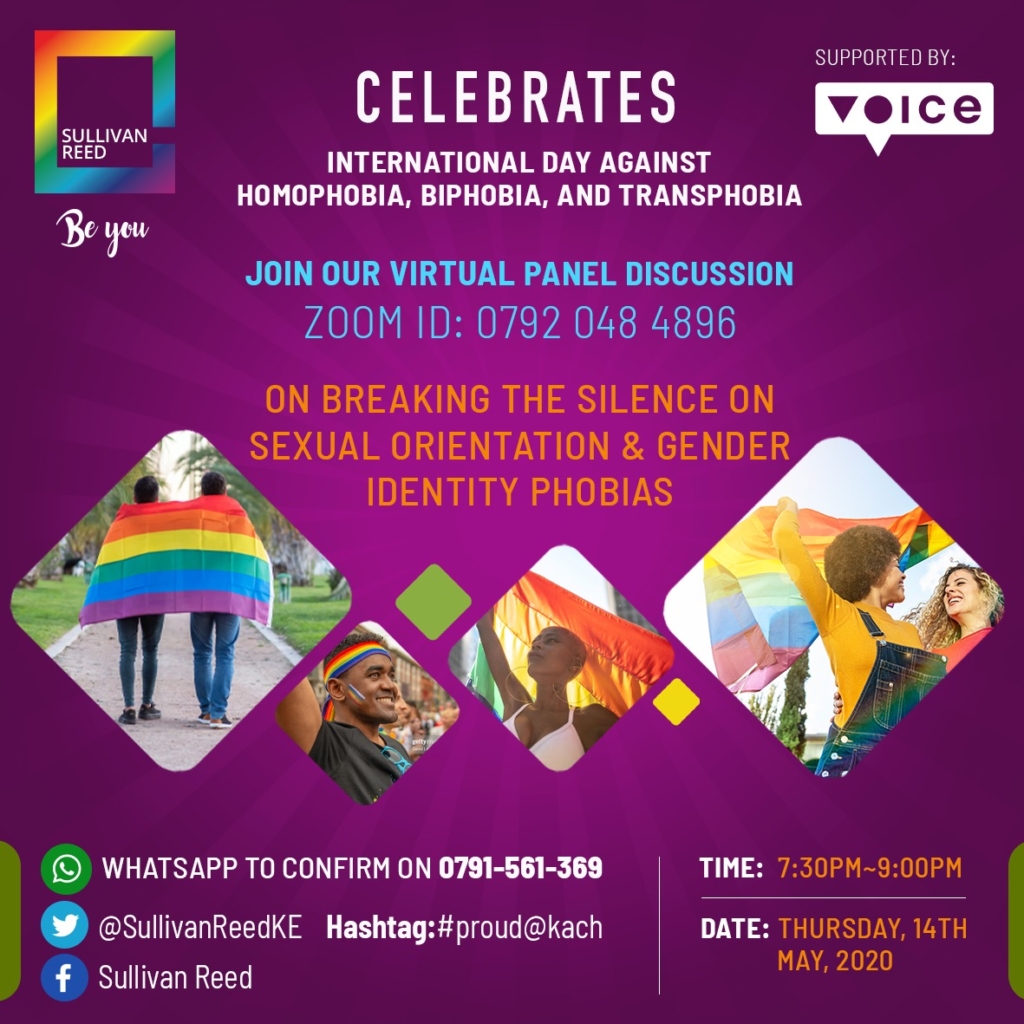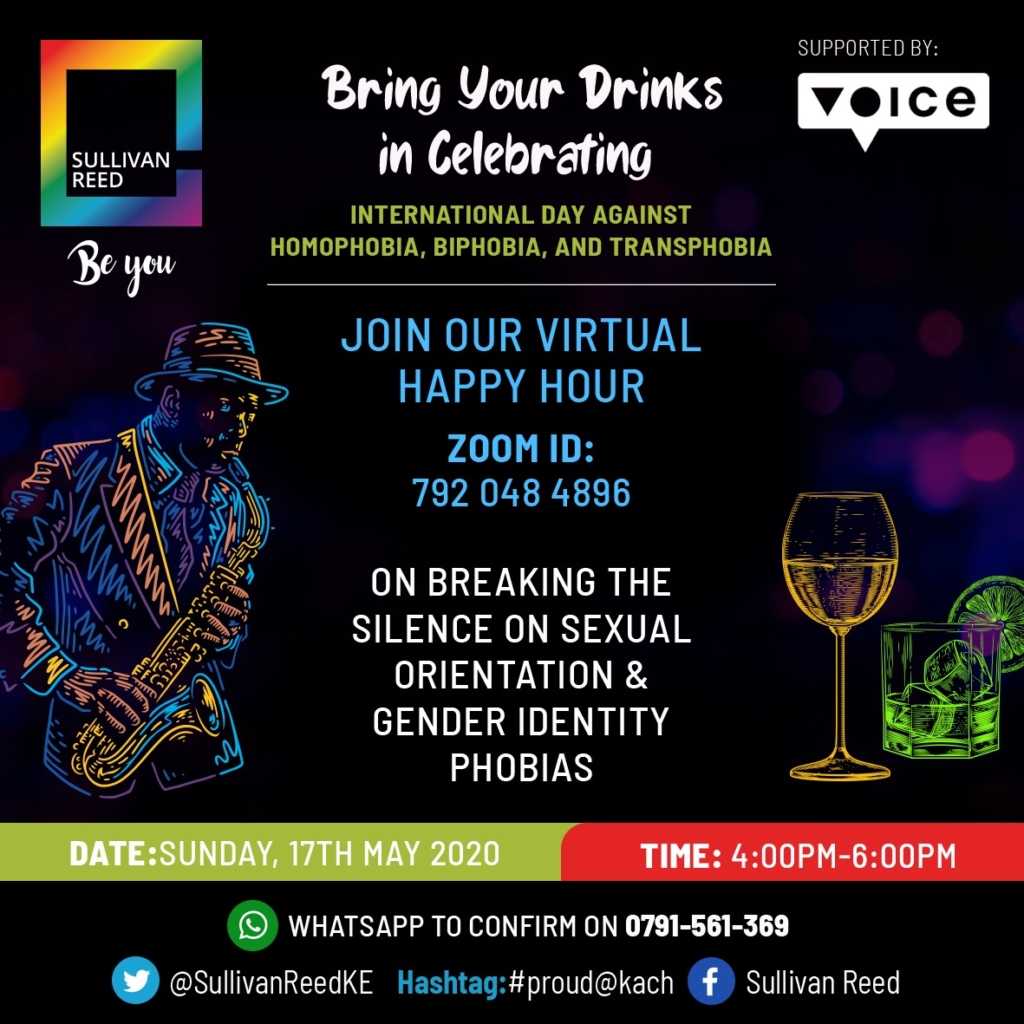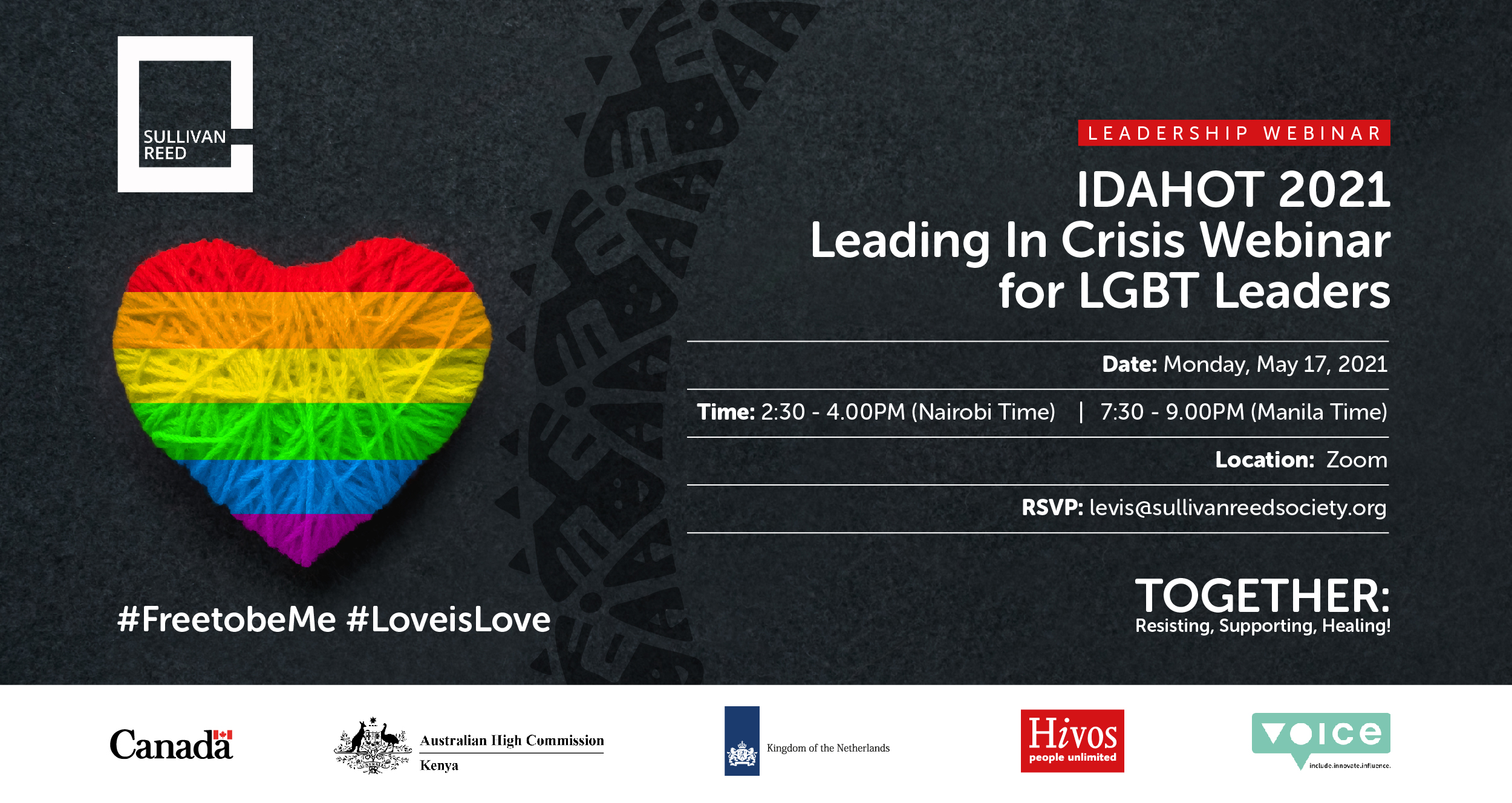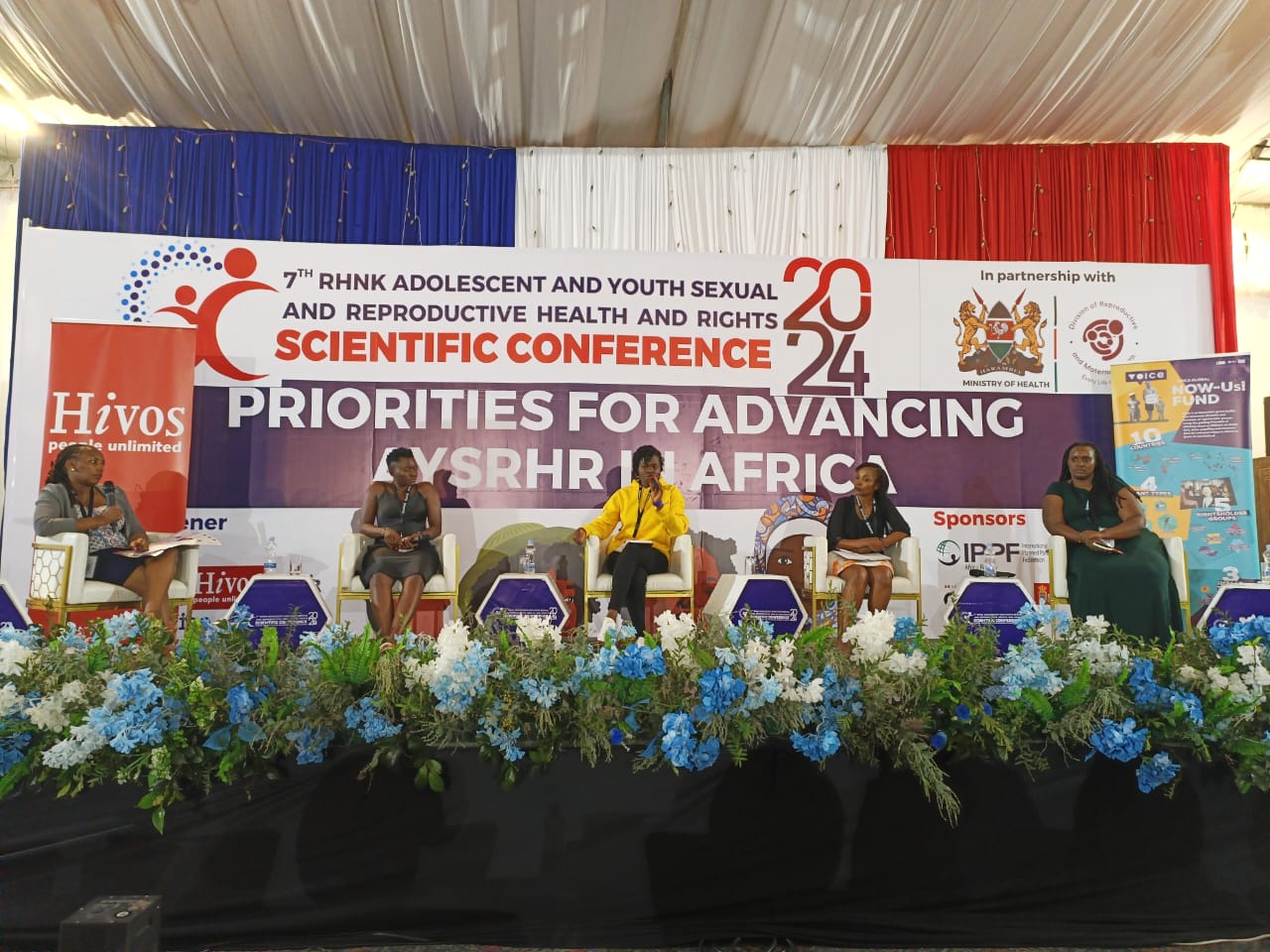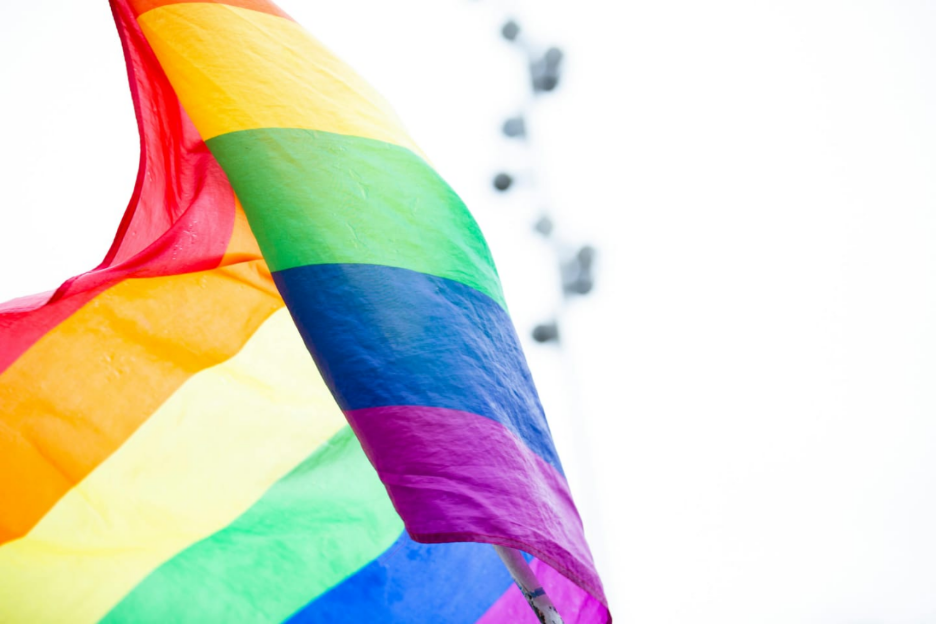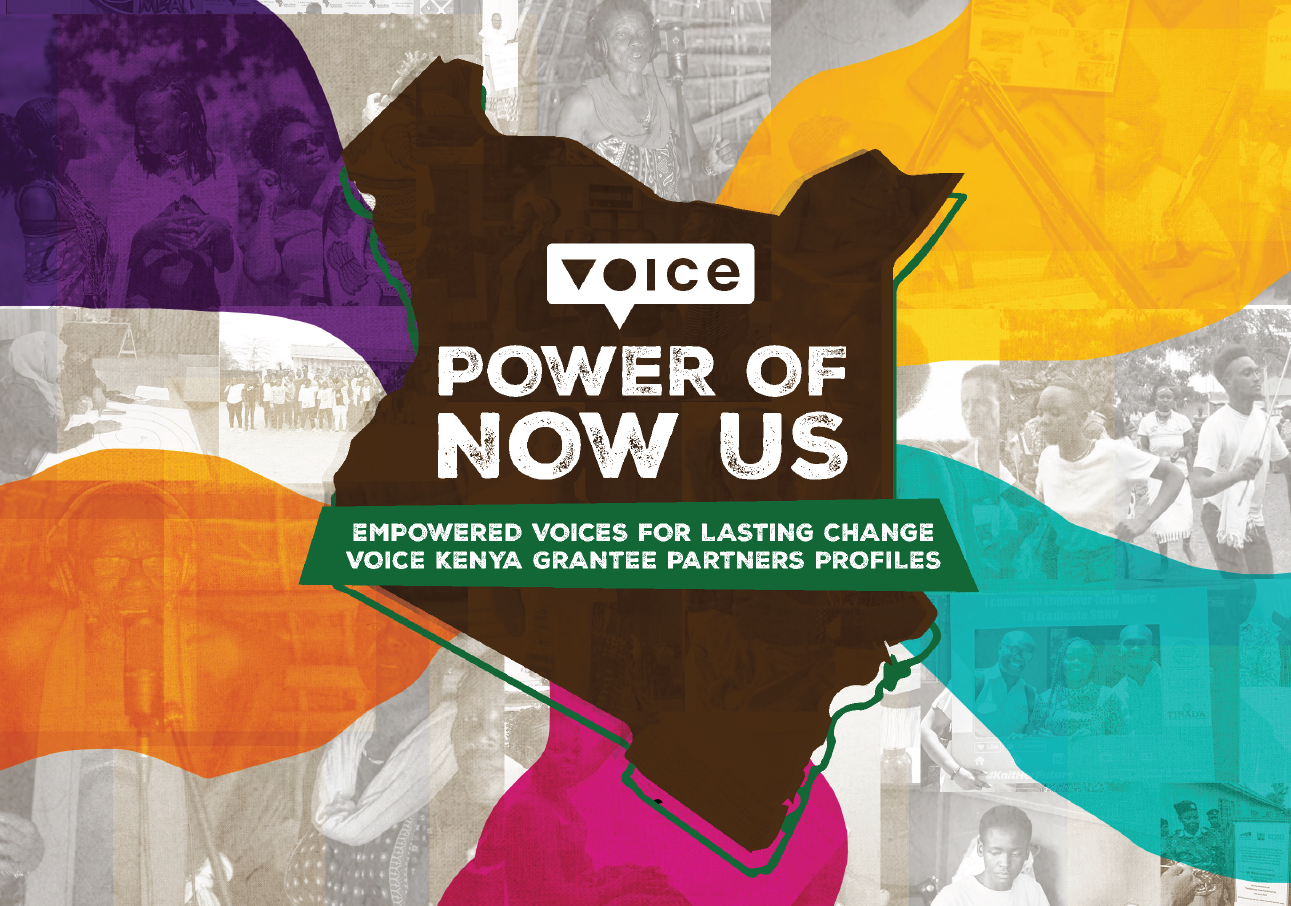Bringing all our voices together- IDAHOT 2020
Or, the impact of COVID-19
This blog is written by Teddy Wachira and Nancy Nyaleso from Sullivan Reed, a small LGBTI group who with the support of an empowerment grant are providing safe spaces for LGBTI students in Kakamega, Kenya. Teddy and Nancy are sharing candidly how COVD-19 has changed their approach and lives!
A changing reality
COVID-19 has greatly affected all areas of our lives and not just work-wise. For many of our members, the isolation, lack of a physical meeting with friends, and increased cost of living continue to be a challenge. There are LGBTI youth who now have to live with their homophobic parents as well as some parents just getting to know their children are gay, threatening to cut off their tuition support. Some LGBTI youth have had their houses closed due to arrears in rent because they rely on casual jobs that are no longer as available. These are some of the few challenges that we have been tackling head-on.
Like the rest of the world, we had to embrace new ways of communicating and socialising. Whatsapp groups and chats have become the main method of reaching out to each other both within the organisation and within our networks. We have scheduled Zoom meetings each week, after offering training on its use to everyone. We have moved our monthly meetings to the virtual space as well, making phone calls when necessary and using emails for official communications. These online communications have improved our sense of belonging, and community.
Celebrating IDAHOT 2020
Our two-hour online virtual meeting on zoom attracted over 35 participants and had a diverse group of panellists. The event was a safe space for all with the discussions focusing on how each individual is breaking the silence on sexual orientation and gender identity.
Here is a snippet of our panellists’ profiles and topics: Mauricio Ochieng and Richard Blair Miheso, shared their respective journey to self-acceptance as a transgender and gay man respectively. They talked about the challenges they faced and how LGBTI persons can amplify their voices, using relevant examples that the participants could relate to. JohnVictor, an ally, shared his journey to embracing LGBTI inclusion and diversity. Rachael Mwikali, a feminist, delved into the role of women’s movements in breaking the silence. Damaris Ongeri together with Rhema Njoki explained the role of millennials and centennials in amplifying the voices of LGBTI.
Some of the key insights from the meeting included:
- More sensitisation on LGBTI issues needs to be done in schools, workplaces, and communities to reduce stigmatisation and enhance inclusion.
- Creating safe spaces and community for LGBTI youth should be a continuous endeavour—online and offline.
- Providing tools and resources that foster LGBTI allyship is critical.
- LGBTI movements should seek out more support from other stakeholders such as human rights movements to ensure protection and justice for members.
- Women’s movements should be intentional about inclusion by putting in place structures that support inclusion of people from vulnerable populations within their organisations.
- Having more conversations around LGBTI issues and support systems is essential for the communities’ wellbeing and a more inclusive society.
This is the time to stand up for those on the margins and support each other now and beyond. Nothing about us without us.
Says Teddy Wachira

